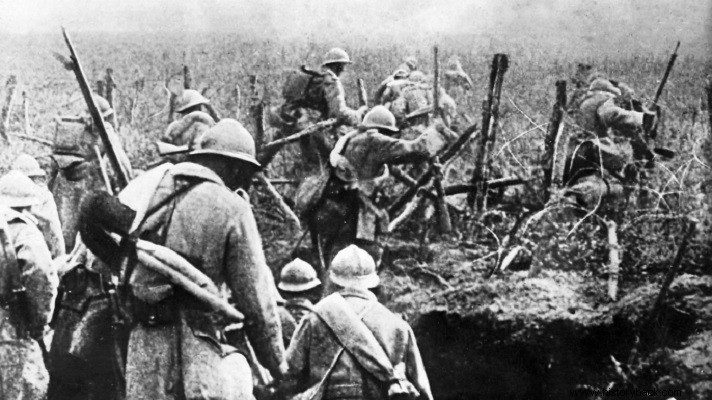
A World War I French helmet protects soldiers better in the event of explosions than the helmets used by the US military today, a century later, according to a recent study. "Duke University biomedical technology researchers have shown that (…) modern military helmets do not better protect the brain from the shock wave caused by an explosion than those of World War I," the University said in a statement.
"One model in particular, the French Adrian helmet, performs better than modern models for blast protection," said the study, which was released last week as the Pentagon announced that 109 US soldiers had suffered concussions. because of the Iranian missiles that hit their base in Iraq in early January.
The Adrian helmet began to be distributed from 1915 to French soldiers. Head injury was one of the main causes of frontal casualties, and this lightweight helmet, which was incapable of stopping a rifle or machine-gun bullet, had a ridge on its top, a piece of metal intended to cushion the shock coming from high.
US researchers compared three World War I helmets with those used by the US military today, which they found trench warfare to be the closest to fighting jihadist groups:the round, ridgeless Brodie helmet used before a century the British and American soldiers, the German Stahlhelm (also used in World War II) and the French Adrian.
The pressure applied to the top side of the helmet was equal to that which can cause a cerebral hemorrhage. The tests showed that the risk of serious injury was 50% without any helmet, under 10% with the German and British helmets, 5% with the modern American helmet and just 1% with the French.
"The result is striking because the French helmet was made with the same materials as the German and British and was thinner," noted one of the study's authors, Jost Opt Eide. “Their main difference was that there was this plume on the top of the helmet. Although it was put in to protect soldiers from metal fragments, this feature could also protect against shock waves," he added, recommending that the US military redesign the helmets it uses to better protect against blasts.
